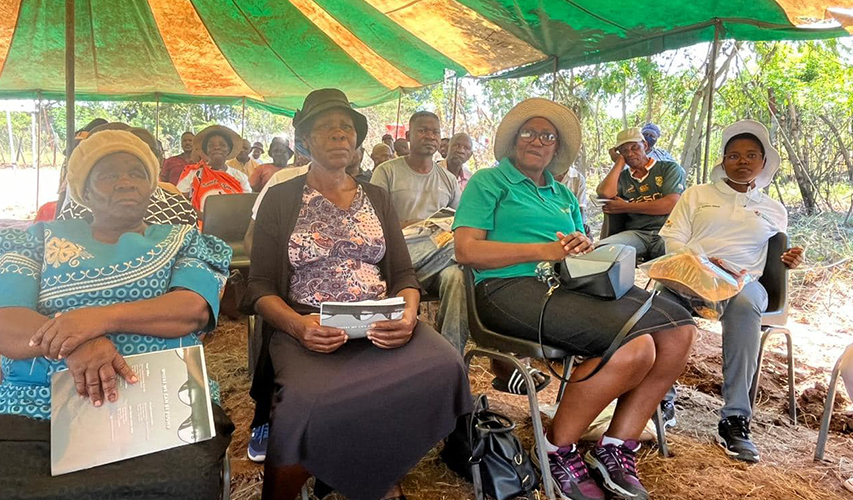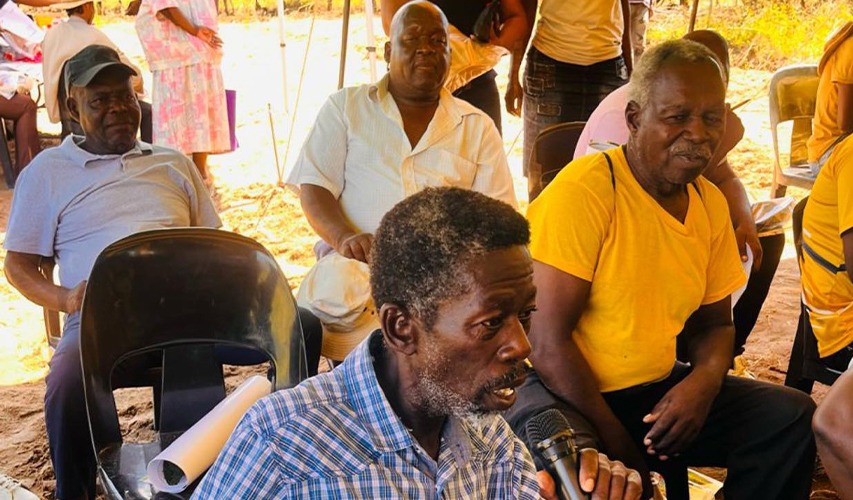The objective of the event held at Sulubindza in Hazyview was to host small-scale farmers and raise public awareness about the latest technological advancements, sustainable production methods, and underutilised crop production.
Dr Salmina Mokgetle, a lecturer at the University of Mpumalanga School of Agricultural Sciences, addressed small-scale farmers from Mbombela during the event, which focussed strongly on contributing to increased agricultural production from underutilized resources that are profitable, sustainable, and productive.
Working closely with the Water Research Commission, Dr Mokgetle has embarked on a project to assist small-scale farmers interested in farming underutilized crops. She said, "Our interest is to take up and mentor individuals who want to work with water and are interested in underutilized crops."
"The underutilized crops are very good because they are drought-tolerant and don't use too much water, as well as gypsum because they can have biological nitrogen in the soil."
 Small-scale farmers from the surrounding areas attended the event.
Small-scale farmers from the surrounding areas attended the event.
Dr Beverly Mmapholo from the Agricultural Research Council (ARC) added that indigenous crops are rich in nutrients compared to exotic vegetables.
She further stated that indigenous crops have medicinal properties that combat diseases in human bodies. "These medicinal properties offer economic opportunities, and that is one of the reasons we are promoting them and commercializing the cultivation of indigenous vegetables."
"The other thing is the sustainability of these crops. We are facing global warming, and these crops can tolerate drought and high temperatures. At ARC, this is one of the reasons why we are promoting them because they can tolerate all these harsh weather conditions associated with climate change."
Dr Mmampholo said ARC is preserving indigenous seeds and growing plants throughout the year to secure them as future food sources.
 Local farmers had the opportunity to ask questions and engage with the speakers.
Local farmers had the opportunity to ask questions and engage with the speakers.
"We are promoting awareness; we should be proud of our indigenous food because the upcoming generations won't be familiar with our indigenous food. We are preserving the seeds and growing the plants throughout the year because these crops are considered our future food."
UMP Agricultural Sciences and Nematology Student Society students administered questionnaires to gather more information about the crops farmers are cultivating, enabling the University to select qualifying candidates.
Dr Mokgetle added that the questionnaire aimed to assist in determining who can qualify to be part of the project. "We did try to visit many farms, but this event will help us identify and assess who is cultivating what so that we can make the selections."
Farmers were also allowed to interact with all the speakers and ask questions.
Story and pictures by Bulelwa Maphanga.